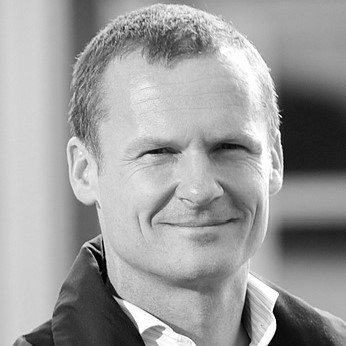Debate on The Contested Provisioning of Care and Housing
Articulations between neoliberal social-policy reforms and the shift to the far-right through the light of Polanyi’s theory of fascism [1]
15th of September, 2022

Roland Atzmüller
The crisis of financialised capitalism since 2008 and the subsequent sovereign debt crisis led to austerity regimes and imposed cuts in welfare systems in many countries which reinforced the neoliberal dominance over economic and social policies in most European countries. These developments were accompanied by a global upsurge of far-right and right-wing populist movements and parties. The latter are increasingly able to combine grievances about social and economic crisis with the rejection of a range of socio-political and cultural developments concerning e.g. the transformation of the overcome gender division of labour linked to changing family forms and increasing female employment, the social recognition of queer identities and different sexual orientations and genders or the social conflicts about the creation of sustainable lifestyles fighting climate change and their impact on everyday live (e.g. reduction of cars, meat consumption etc.).
The upsurge of far-right and right-wing populist movements and parties has led many observers to understand them as an oppositional albeit nationalist reaction of society – even a “counter-movement” in a Polanyian sense – against the destructive effects of unfettered markets and financialisation fostered by neoliberalism. Others, referring more strongly to the socio-political and cultural orientations of these actors, are asking whether these movements and parties bring about a radicalisation of the still unfolding neoliberal transformation of capitalist societies through combining a nationalist reaction to the economic crisis with an authoritarian transformation of social and cultural relations. For some insights into these questions, a closer look on Karl Polanyi’s analyses (1979; Polanyi 2001) on the emergence of far-right, fascist movements and parties in the crisis of capitalist societies in the first half of the 20th century proves very useful. Against a schematic interpretation of his major work “The Great Transformation” (Polanyi 2001) Polanyi’s (earlier) analyses of Fascism (Polanyi 1979, 2005, 2018) reveal that he viewed these movements not only as a reaction to the crisis of unfettered market expansion and the subsequent increase of unemployment and poverty. Rather he explicitly linked Fascism also to the post-WWI expansion of democracy, individual freedoms and social policies which rest on the assumption of equality of all human beings, which they want to improve (e.g. expansion of welfare systems). For him, Fascism was an answer to the political stalemate and crisis which the unresolved tensions between the outlined developments and liberal market expansion had created in the 1920s.
Thus, in his papers of the 1930s about Fascism (Polanyi 1979) as well as in The Great Transformation (Polanyi 2001) he labelled Fascism as a political project to rescue capitalist societies from the crisis. For this, Polanyi identified three core elements of fascist philosophy (2001, p. 247). Thus, Fascism represents a move(ment) which aims at rescuing capitalism through first, an attack on and the destruction of democracy, second, the abolition of individual freedom within society (Polanyi, 2018a) and third, by grounding the institutional structures of society on assumptions of fundamental and hierarchical – based on national or ethnic affiliations – inequalities between human beings. Thus, for Polany faschism set in place a revolutionary reorganisation of the whole state and social fabric. This amounted to a full scale attack on and abolition of all democratic institutions and processes, rights and organisations (Polanyi, 2005, p. 219) as well as the imposition of policies to enforce new forms of docile subjectivities – if necessary through torture and violence (Polanyi 2001, 245).
Polanyi’s account on Fascism helps to understand the role and function of far-right “countermovements” in the crises of market societies – namely its anti-individualistic core, its rejection of universalist assumptions about the equality of individuals within society (Polanyi, 2018a, p. 96) and its denial of the legitimacy of individual gains of autonomy (Vobruba 2014) (“freedom”) and emancipation enabled through the expansion of protective social institutions such as welfare systems. He juxtaposed the fascist rejection of individual freedom to its universalistic opposite which expands through the democratisation of society and will be fully realised in a socialist future.
Polanyi’s conceptualisation of Fascism allows to understand how the emerging aporias and contradictions of neo-liberal welfare reforms opened spaces for far-right populism and its authoritarian social and political goals and how these political projects could converge (Atzmüller/Décieux 2019a, 2019b). From the start, neoliberal reform projects aimed at a retrenchment of democratic participation of e.g. unions, welfare retrenchment and the expansion and liberalisation of markets. These enabled about a global expansion of inequality and an enforced commodification of social reproduction which undermined the expansion of individual gains of autonomy and emancipation. The contradictions of neoliberal economic reforms pushed capitalist social formations in unfolding circles of multiple crisis as the former consciously undermined and destroyed the social (and political) embedding of the economy. Against this background, farright parties and movements promise to tackle the multiple crisis of capitalist social formations which emerge from the contradictions between the dynamics of market expansion and the commodification of social developments on the one hand and the crisis induced changing demands of social and ecological reproduction. They try to do so via a nationalist and reactionary attack on and reorganisation of welfare institutions and social policies These include the enforced return to traditional gender roles and divisions of labour in the core family and nativist social policies to counter an alleged replacement of autochthonous populations. The weakening of democratic institutions appears as a crucial instrument to implement these changes and bring about so-called illiberal democracies.
[1]This text is based on two joint publications with Fabienne Décieux. (Atzmüller/Décieux 2019a); Atzmüller/Décieux (2019b).
References
Atzmüller, Roland/Décieux, Fabienne, 2019a: “Freedom’s utter frustration . . .”: Neoliberal social-policy reforms and the shift to the far-right through Polanyi’s theory of fascism. In: Atzmüller, Roland/Aulenbacher, Brigitte/Brand, Ulrich/Décieux, Fabienne/Fischer, Karin/Sauer, Birgit (Hg.): Capitalism in transformation. Movements and countermovements in the 21st century. Cheltenham, UK u.a., 135–151.
Atzmüller, Roland/Décieux, Fabienne, 2019b: “The origins of our time”. Articulations between neoliberal social-policy reforms and the shift to the far-right through the light of Polanyi’s theory of fascism. Social Work & Society. 18. Jg. Heft 1.
Polanyi, Karl, 1979: Das Wesen des Faschismus. In: – (Hg.): Ökonomie und Gesellschaft. Frankfurt/Main, 91–125.
Polanyi, Karl, 2001: The great transformation. The political and economic origins of our time. Boston.
Polanyi, Karl, 2005: Die geistigen Voraussetzungen des Faschismus. In: – (Hg.): Chronik der grossen Transformation. Artikel und Aufsätze (1920-1947). Menschliche Freiheit, politische Demokratie und die Auseinandersetzung zwischen Sozialismus und Faschismus. Herausgegeben von Michele Cangiani, Kari Polanyi-Levitt und Claus Thomasberger. Marburg.
Polanyi, Karl, 2018: The fascist virus. In: – (Hg.): Economy and society. Selected writings. Edited by Michele Cangiani and Claus Thomasberger. Cambridge/Medford, 108–122.
Vobruba, Georg, 2014: Autonomiegewinne und Gesellschaftskritik. In: Fehmel, Thilo (Hg.): Systemzwang und Akteurswissen. Theorie und Empirie von Autonomiegewinnen. Frankfurt am Main u.a., 265–281.
Roland Azmüller
Roland Atzmüller is Associate Professor at the Institute of Sociology at the Department of social theory and social analyses at Johannes Kepler University in Linz, Austria. Before, he was a researcher at the Working Lives Center Vienna (FORBA). He has co-edited ‘Capitalism in transformation: Movements and Countermovements in the 21st Century, Edward Elgar Publishing, Northampton, 2019’ together with Brigitte Aulenbacher. In this book he published with Fabienne Décieux “Freedom’s utter frustration . . .: Neoliberal social-policy reforms and the shift to the far-right through Polanyi’s theory of fascism”. Roland Atzmüller works on (critical) theories of capitalist societies, welfare states and social policies with an amphasis on labour market policies and is a Board Member of the IKPS.
Read the other essays on the Contested Provisioning of Care and Housing here:










